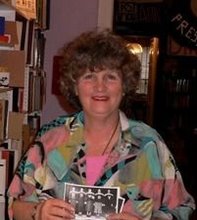I wait for the night to write you, as if I am one of those late night radio djs who whisper low into their microphones as the hours tic by, soft gravelly voices speaking into their listeners' dreams, stopping just long enough to play the best jazz you will ever hear. No jazz here, but the most wished for sound of falling rain--all day it has poured, wet slick roads, floods in the bluestone laneways, a thirsty garden taking it all in, growing greener and thicker before our eyes. At Fitzgibbon, where we live, there is some worry. La Profesora has not been feeling well and we were off to doctors today.
While she sleeps, I paint and listen to the radio, ABC, the national station here, like WBAI used to be and I hear a recent interview with Studs Terkel, a man who once called me in a Chicago hotel room, he was speaking to a reporter about the 1960s and wanted to quote from my essay, "This Huge Light of Yours," never before had I arrived in a new town and had such a message waiting for me. Now I hear his words, about hope and curiosity and the wonder of recording people's stories and his bewilderment at this present America and I feel I am listening to an old friend, I think of him and Grace Paley, their wonderful pugnaciousness, all in the service of common dignity. We can not afford the loss of such voices these days. "The sixties is a favorite target," I wrote twenty years ago, "of those who take delight in the failure of dreams. For those who dabbled in social change or who stayed aloof from the passion of the times, the sixties has become a playground for nostalgia, a pot-filled room of counterculture adolecents playingwith anger. But it is a sad cynicism that jeers at the defeat of courage and commitment, and a selfish one too...There is one group of Americans that cannot play with the sixties, cannot give those years to mockery and disdain. In Alabama and Mississipi and Arkansas, in Watts and Harlem and Phildelphia, in luncheonettes and in movie theaters, on beaches, on school steps, and one buses, black Americans took history into their own work-worn hands, carried it on their tired feet, until it became a different thing." We must do this again, this walking and talking about change, this doing and moving until our nation takes another path, wears another kind of face.
"Alvin Krongard, 71, who left a $4 million-ayear-job in investment banking to serve in top posts at the Central Intelligence Agency from 1998 to 2004, played what he describes as a routine role as ain intermediry in helping blackwater get its first big security contract from the agency for guards in Afghanistan in 2002. A martial arts enthusiast and former MArine who has regaled friends with tales of punching a great white shark while scuba diving, Mr. Krongard said he later became friendly with the company's founder, Erik D. Prince. They have hunted near Blackwater's North Carolina's training ground and Mr. Krongrd's hunting club in Maryland...now the Krongard brothers, known as Buzzy and Cookie through their long careers--are tied up in the tangled story of of the deaths of least 17 Iraqis while guarding a tate department convoy in Baghdad." from "Brothers, Bad Blood and the Blackwater Tangle" by Scott Shane, NYT, November 17, 2007
Punching a white shark in the face--and hunting, hunting until killing becomes a private business worth more million dollar contracts. Buzzy and Cookie who loved their lacrosse, American grotesques let loose on a fallen country. Oh Studs not your laborers, oh Grace, not your lower East side young mothers trying to make sense of love in hard times. Do not leave us now, now in our lost years.
Which brings me to a memory--in the mid 70s and through the 80s I traveled the US with a slide show I put together called "Butch-Fem Relationships: Sexual Courage in the 50s and 60s," perhaps some of you might have seen it. Using excerpts from tapes I had made with mostly butch women from my PreStonewall communities, I played their voices and showed their images in darkened rooms in university towns and lesbian and gay gathering centers in many American cities. And like Studs, I knew the gifts that were exchanged when one voice asked another to make their history a tellable story, when one became a listener with an eye on a new kind of history. And so Jul's story of the first time she used a dildo was born--a story I was to tell so many years later in a queer gathering in Jerusalem and Sandy Kern's history of 50's butch desire and Mabel Hampton's tellings of life with her wife, Lillian Foster, from 1932 until 1978--never parted--until death separated Big Bear and Little Bear. But even in the listening and telling, bodies made new histories. In this late night in Melbourne, with my profesora trying
to fight off her exhaustion, I think of one evening in a small apartment in the West Village, near Hudson street, over 20 years ago now, taping C.'s tales of bar raids she had been caught in, how the girls helped each other out, and how she missed those times. I haven't touched a woman in years, she said, the longing hanging like a curtain in the darkened room. And so, when she had finished remembering, I held her head against my breasts and let her suckle. Stories and touch, so much of my life has been in seeking out both.
Wednesday, November 21, 2007
Subscribe to:
Post Comments (Atom)

No comments:
Post a Comment